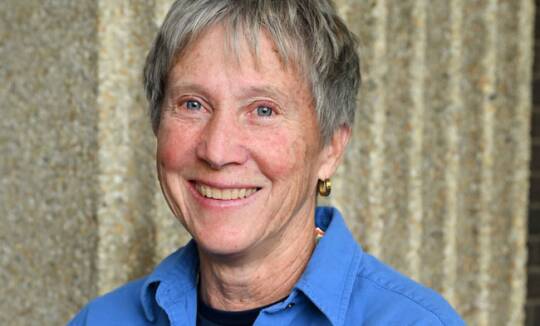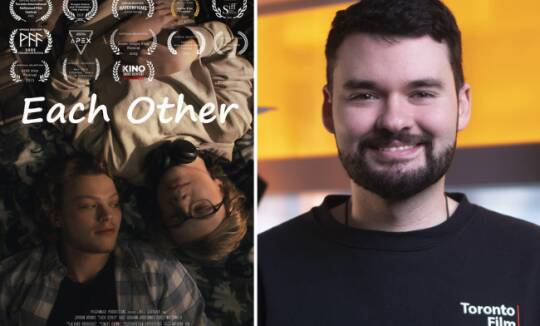
It’s February in Canada, and all across the country, we’ve seen the temperature dropping to record lows. We are in the dark heart of winter. We struggle to maintain that state of magical New Year’s euphoria that gave us the feeling of being able to accomplish anything. Our energy and optimism wane, as outside our windows, winter continues uninterruptedly. The sun hides behind the horizon early, leaving us with long, dark evenings.
Being outside does not bring any pleasure, but only intensifies the desire to hide in the silence and comfort of our homes. Thus, we slowly allow ourselves to fall into the trap of the winter blues. We are unable to motivate ourselves and enjoy what we do, and we act mechanically and repeat our everyday activities monotonously. Although we are aware of our state and know that something is happening to us that we don’t want, it is difficult for us to fight or change it.
Fortunately, there are few roads without an exit, and in this case, there are many ways out. The first step is done for us, because we know what we have to overcome and face. At first, it can be hard to break through and get out of the state of numbness and temporary powerlessness. Therefore, at that moment, it is important to impose on yourself specific objectives and ways to achieve them. Although the word “impose” may raise doubts, because we are unlikely to enjoy doing something under pressure, over time, that “something” can turn into regular activity and habit.
How can we fight these feelings of depression and sadness? Perhaps we can turn to the help of exercise, self-care, and physical and emotional contact with people.
Doing Physical Activities
If you like winter sports, you are certainly looking forward to winter. When winter in the city overwhelms you, don’t let it keep you depressed for long. If you have never tried skiing or ice skating, perhaps now is the time. Surely you know someone who can do it well, and maybe you have even received suggestions to go on a trip together with friends or family. The argument that you don’t want to because you have never tried is no excuse. You will never know if it’s for you if you don’t try. It may even turn out that you will love winter sports, and you will not be able to imagine each subsequent winter without them. Let yourself be persuaded: even this once, you have nothing to lose and a lot to gain. However, if you derive more joy from peace and silence, perhaps it is worth deciding on a mountain hike to admire the winter views and beauty of nature away from the hustle and bustle of people.
Taking Care of Yourself
You often don’t want to leave your cozy home on winter evenings. So don’t waste that time by just doing anything. Give yourself both intellectual and physical pleasure. Spend this time with a good book and let yourself be carried away by it into a different world, forgetting about the frost and darkness surrounding everything outside. Read about something new and interesting, as there are always fascinating things that we haven’t heard of yet. Maybe you’ll feel drawn to something that will become a passion. Get involved and become fascinated with whatever you read, listen, or watch; winter will pass by faster than you could imagine. After a long and often tiring day, take a long, relaxing hot bath and just relax. A bath or shower will give you not only the possibility of physical, but also mental comfort. This will allow you to relax tense muscles and improve the skin’s condition, which does not tolerate well the outside low temperatures and the dry air caused by the increased heating inside.
Meeting Physically with People
On a snowy and frosty morning, someone calls you to go for coffee with them. In the evening, you get another call to go into the city for fun. What to do here? This question shouldn’t be asked at all. Of course, you will! At first, you don’t feel like getting dressed, going out, and spending a few more minutes on the road, but that will be forgotten when you get there. It’s always like that; you know it perfectly well, so what’s there to think about? A pleasant chat, laughter, and fun are the things you can count on. Fighting a bad mood and letting it go into oblivion is always easier in a group. Most importantly, suggest the next meeting yourself.
If you really don’t want to, you first need to decide that you will not let the winter blues let you down: that no frost will dampen your enthusiasm and that no snowy weather will stop you. After all, it’s pointless to be sad and do nothing, and it’s a waste of precious time.
Connecting Emotionally with Others
The topic of meeting people is one of the foundations of human existence. It is a paradox that such common, almost unrestrained moral coexistence simultaneously distances us from the feeling of authentic closeness and intimacy with people important to us.
As we enter the post-COVID-19 era, it is important to acknowledge that the space between people has made many feel profoundly isolated. Yes, physical health can be protected by the distance between bodies. However, mental health must also be protected by keeping a closeness between people and emotions. You can be physically distant from someone while still remaining emotionally close.
John Bowlby, the creator of the attachment theory, talks about closeness in interpersonal relationships as the basis for good human development and functioning. Calling it a “secure base,” he set a criterion for a good and safe existence in the world. These relationships will help overcome any sadness or other psychological problems that you may encounter at the beginning of the new year.

Dr. Jack Olszewski is an educator with experience in teaching philosophy (Italy) and psychology (Canada and USA). Dr. Olszewski is an expert with extensive theoretical knowledge, practical experience, and publications in the mental health field. His teaching model and research on professional ethics seek to educate professionals regarding the theory and applications and discuss the principles of a helping profession. While teaching full-time psychology at Yorkville University, Dr. Olszewski provides students and practitioners with a well-informed and meaningful learning environment, which includes personal and professional development in applying guidelines to clinical/counselling activities and the professional responsibilities of mental health professionals.






